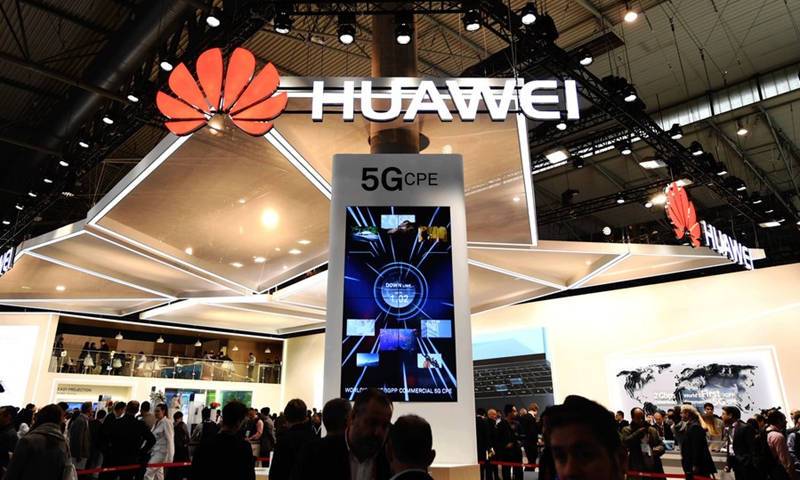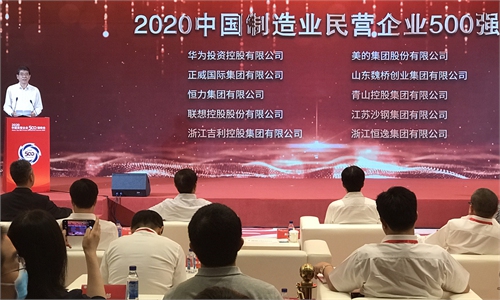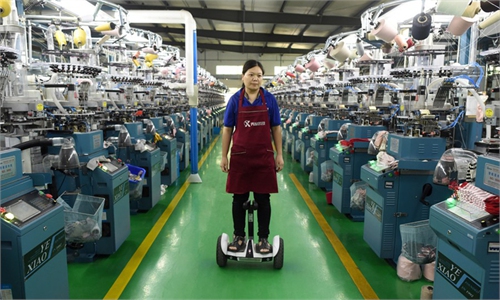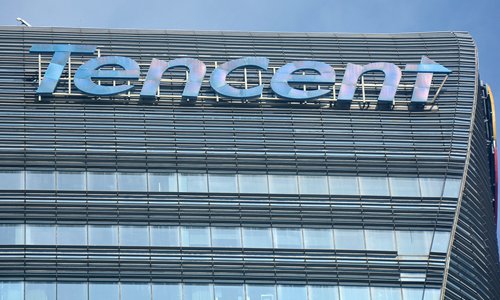
Photo taken on Feb. 26, 2018 shows a screen displaying the 5G technology at the booth of China's telecom giant Huawei during the 2018 Mobile World Congress (MWC) in Barcelona, Spain.(Photo: Xinhua)
China on Saturday unveiled its latest rankings for its 500 largest private firms, with tech giant Huawei atop the list for the sixth consecutive year with revenues of 891.37 billion yuan ($137.9 billion) in 2020, while the country's indebted property firm Evergrande was absent from the rankings.
Chinese e-commerce giants JD.com and Alibaba ranked within top five on the list released by the All-China Federation of Industry and Commerce (ACFIC) at the China Top 500 Private Enterprises Summit on Saturday.
JD.com has become the domestic private enterprise that supports the largest number of employees with a total of 369,100 as of the end of 2020.
To be listed, an enterprise needed to have revenue exceeding 23.5 billion yuan in calendar year 2020, up 3.3 billion yuan compared with the threshold of the previous year, according to Huang Rong, vice chairman of the ACFIC.
Chinese property developer Evergrande, which ranked 122nd on the Fortune Global 500 unveiled in August, was absent from this year's list.
The real estate giant said it will pay interest to professional investors starting from Thursday for corporate bonds issued in 2020, with interest paid at 58 yuan, tax included, per lot with a par value of 1,000 yuan, following discussions about the firm's debt continued to ferment over recent days.
Over the past year, uncertainty and challenges have been increasing for private firms as the international market remains sluggish, supply chain and industrial chains have been impacted, and the costs of raw materials have risen, according to the report.
In terms of costs, raw material costs, tax burdens and financing costs are still the most important cost burden for the top 500 private enterprises.
Global Times



